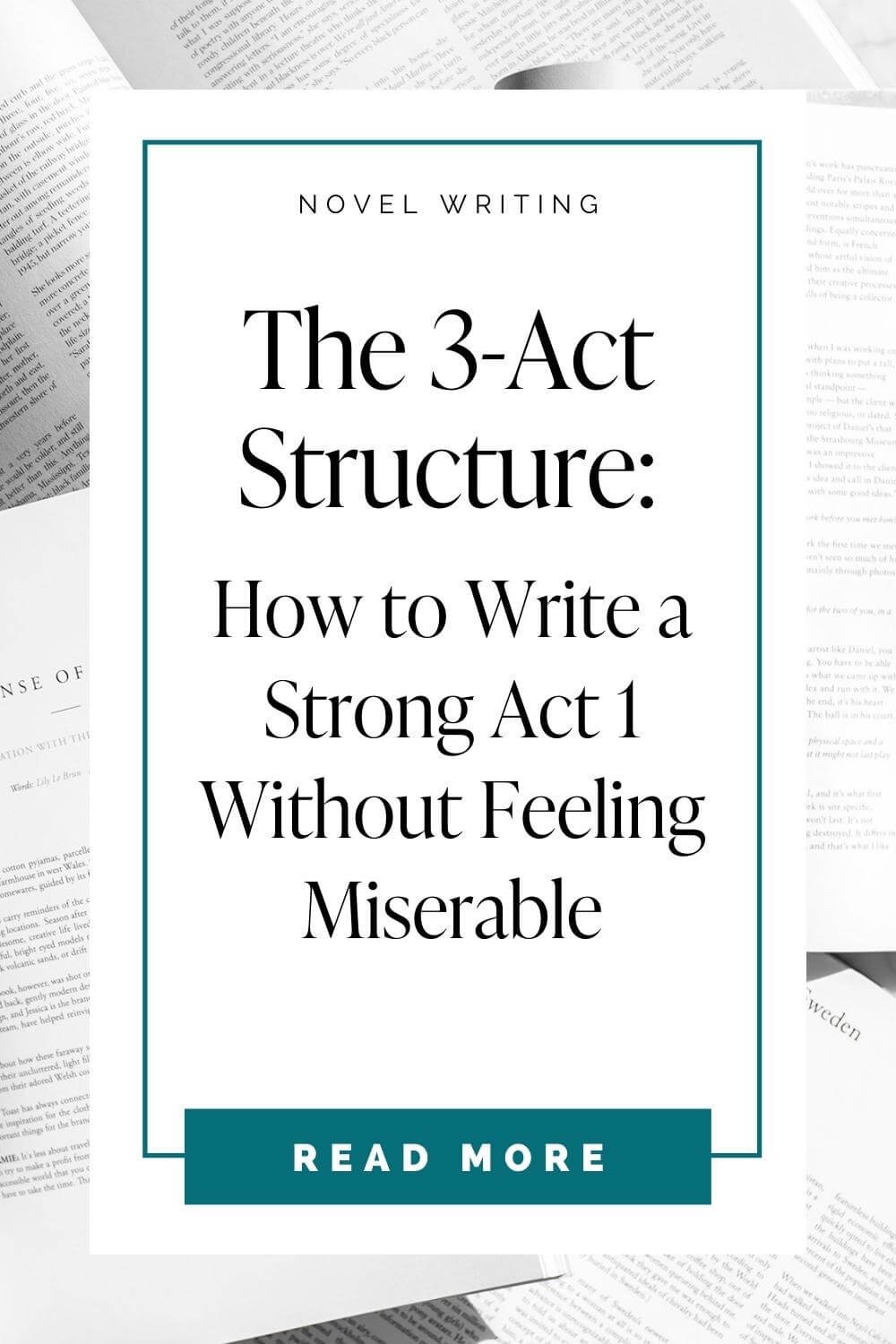
LET’S TALK about WRITING BOOKS
The 3-Act Structure: How to Write an Engaging Act 2 Without Boring Yourself to Tears
Rumor holds that Steven Spielberg once said—and excuse my French—“third acts are a bitch.” Not to contradict the God of the 21st Century Box Office, but I actually think second acts are harder.
To kick us off, I'm going to continue my story from last week about my first year of law school.
After the conversation with my aunt, a lawyer who tried to make me feel better about being in law school and not feeling smart enough to be there, I thought, “Okay, Mary, it’s time to get your act together.”
The 3-Act Structure: How to Write an Authentic and Satisfying Act 3
Here we are at the Big Kahuna of the 3-act structure: the third act. If you haven't read my last three blog posts on the 3-act structure (an overview and details on Act 1 and Act 2), please go do that now and then come back to this one. (Otherwise, this is not going to make a whole lot of sense.)
Three posts ago, I gave you an overview of the 3-act structure as a simple, powerful way to structure your story.
Then, I walked you through creating a strong Act 1 to hook you and your audience in quickly and effectively.
Next, I talked about how to write an engaging Act 2 by investing emotionally in your story. Now, we’re taking on the third and final act—the last thing you leave your audience with.
I’m sure you’ve been wondering all week how my law school story ends, so let’s wrap it up!
The Least Annoying and Most Usable Breakdown of the 3-Act Structure
Today we’re talking about—DUNH DUNH DUNH—the 3-act structure.
I used to be very intimidated by the 3-act structure. I listened to a very intimidating audiobook called Story and it included some line about how, if I made one wrong decision, my entire story would fall apart, and I turned it off immediately.
3 Solutions to Combating Writing Disappointment That Aren't Delusions of Grandeur
Dear Mary,
Do you have suggestions for dealing with the struggle that the idea in your head is so much better than the way it comes out on paper?
When this question came up in our weekly group coaching call, there were a lot of nods. I think this is a struggle that many writers relate to—the disappointment of the words on paper failing to live up to our novel idea.
I certainly relate to it. Every book I've written has been better in my head, and of course it has—reality can't compete with an imaginary ideal. Our ideals don't have flaws—we conveniently leave those out in our fantasies!
But for some writers, this discrepancy between ideal and reality—the fear of writing disappointment—can be paralyzing.
Why You Should Avoid Feedback-based Writing Programs
When I was 18 years old, I signed up for my first college creative writing class, The Short Story. My experience turned me against feedback-based writing programs forever.
Need Motivation to Write a Book? Here’s My Top Tips
Dear Mary,
Do you have suggestions for dealing with the struggle that the idea in your head is so much better than the way it comes out on paper?
When this question came up in our weekly group coaching call, there were a lot of nods. I think this is a struggle that many writers relate to—the disappointment of the words on paper failing to live up to our novel idea.
I certainly relate to it. Every book I've written has been better in my head, and of course it has—reality can't compete with an imaginary ideal. Our ideals don't have flaws—we conveniently leave those out in our fantasies!
But for some writers, this discrepancy between ideal and reality—the fear of writing disappointment—can be paralyzing.
The 3-Act Structure: How to Write a Strong Act 1 Without Feeling Miserable
Here’s a true story. When I started law school at 25, I was certain that I was the dumbest person there. (That’s the word that I used in my head: dumbest.)
This certainty ran so deep that when a group of students went out to dinner together one of the first nights of school, and someone asked me how big the city I grew up in was, I was too embarrassed to tell him that I had absolutely no idea, so I just said, “medium.”
Not even medium-sized, just medium.
The 3-Act Structure: Follow This Outline and Examples to Create Your Story
Today we’re talking about—DUNH DUNH DUNH—the 3-act structure.
I used to be very intimidated by the 3-act structure. I listened to a very intimidating audiobook called Story and it included some line about how, if I made one wrong decision, my entire story would fall apart, and I turned it off immediately.
How to Choose a Point of View in Literature
There are four types of point of view in literature, and choosing the right one for your novel is one of the most important decisions you’ll make.
First, good news: You’re actually only picking from three, because no one writes in Second Person, unless you’re looking to be very adventurous









